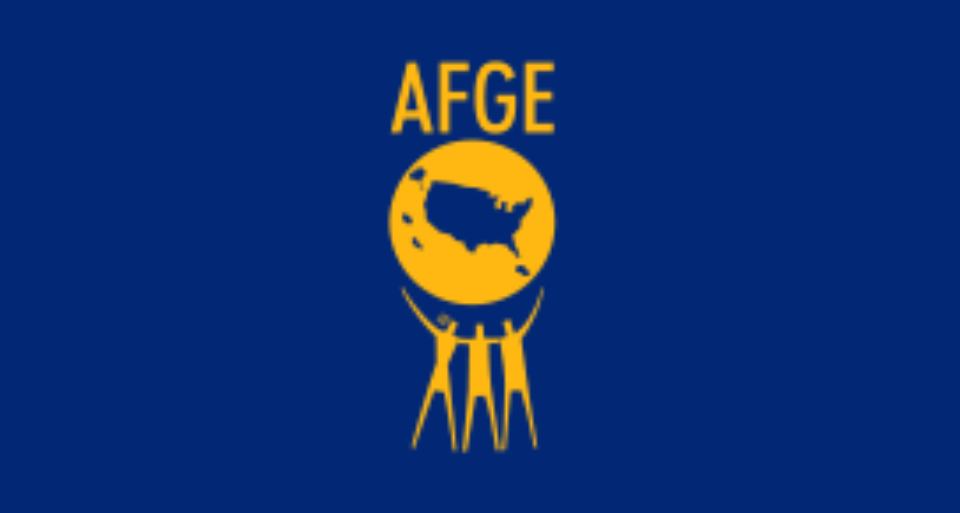NG-4/9/20 (FFCRA Leave)
Federal Employees Will Have Payroll Taxes Deferred in Next Paychecks, Processor Says
August 29, 2020The Government Is Failing to Notify Employees of COVID Cases in Their Buildings or Cleaning, IG Says – Government Executive
September 4, 2020Yesterday, NVAC sent a President’s Briefing informing AFGE Locals that bargaining unit employees who were wrongfully denied emergency sick leave under the Families First Coronavirus Response Act (FFCRA) could file an appeal with the U.S. Department of Labor. NVAC also has a pending National Grievance (NG-4/9/20) regarding the Agency’s failure to properly implement and grant emergency sick leave under the FFCRA. More information on NG-4/9/20 is attached for your reference.
Our National Grievance seeks relief for all impacted BUEs, and the NVAC Legal Team recommends that impacted BUEs wait for the resolution of NG-4/9/20. If an impacted BUE elects to obtain relief through an appeal to the U.S. Department of Labor, they may not be eligible for relief obtained by NVAC through NG-4/9/20.
NATIONAL GRIEVANCE
NG-4/9/20
Date: April 9, 2020
To: Tracy Schulberg
Executive Director
Office of Labor-Management Relations
U.S. Department of Veterans Affairs
810 Vermont Avenue, NW
Washington, DC 20420
[email protected]
sent via electronic mail only
From: Thomas Dargon, Jr., Staff Counsel, National Veterans Affairs Council (#53) (“NVAC”),
American Federation of Government Employees, AFL-CIO (“AFGE”)
RE: National Grievance against the Department of Veterans Affairs for failing to comply
with emergency sick leave provisions in the Families First Coronavirus Relief Act
STATEMENT OF CHARGES
Pursuant to the provisions of Article 43, Section 11 of the Master Agreement Between the Department of Veterans Affairs and the American Federation of Government Employees (2011) (“MCBA”), American Federation of Government Employees/National Veterans Affairs Council (“the Union”) is filing this National Grievance against you and all other associated officials and/or individuals acting as agents on behalf of the U.S. Department of Veterans Affairs (“Agency” or “VA”) for failing to comply with emergency sick leave provisions in the Families First Coronavirus Relief Act (“FFCRA”). To date, the Agency has failed to remedy this violation, and as such, continues to violate the MCBA and federal law.
Specifically, the VA violated Articles 2, 3, 47, and 49 of the MCBA, the FFCRA, the Fair Labor Standards Act (“FLSA”), 5 U.S.C. §7116(a), and any other relevant articles, laws, regulations, and past practices not herein specified.
STATEMENT OF THE CASE
Background
On March 18, 2020, the FFCRA was signed into law. Division E of the FFCRA, also known as the Emergency Paid Sick Leave Act, requires, in relevant part, that the VA provide up {00393450.DOCX - } 2 to eighty (80) hours of emergency sick leave to eligible federal employees who need this sick leave for qualifying reasons related to the 2019 Novel Coronavirus Disease (“COVID-19”) pandemic.1
This emergency sick leave is available to eligible federal employees from April 1, 2020 to December 31, 2020.2 The VA may not require an eligible employee to use other forms of paid leave prior to invoking their right to the emergency sick leave available under the FFCRA.3 A violation of the emergency sick leave provisions of the FFCRA is considered a violation of the minimum wage provisions of the FLSA. 4
On March 24, 2020, the Wage and Hour Division of the U.S. Department of Labor (“DOL”) published Field Assistance Bulletin No. 2020-1, entitled “Temporary Non-Enforcement Period Applicable to the Families First Coronavirus Response Act,” which announced a 14-day “period of non-enforcement of the FFCRA for the period of March 18 through April 17, 2020.”5 DOL’s decision to suspend enforcement does not absolve the VA from liability under the FFCRA. 6 Moreover, it does not prevent employees from requesting and obtaining emergency sick leave under the FFCRA.
On April 1, 2020 the VA Office of the Chief Human Capital Officer (“VA-OCHCO”) issued a bulletin regarding the emergency sick leave provisions of the FFCRA. On April 3, 2020, VA-OCHCO issued an updated bulletin announcing, in relevant part, that the VA will “observe a temporary period of non-enforcement” of the FFCRA to “enact modifications to payroll systems and establish timekeeping procedures for compliance with the new statute.” The bulletin further stated, “VA employees are not able to request this leave in the VA Time and Attendance System until instructions on the payroll and timekeeping process to support the new leave provisions is [sic] to payroll offices and timekeepers.” While the VA appears to borrow certain language from DOL Bulletin No. 2020-1, it cannot impose a “period of non-enforcement” on itself to delay implementation of the FFCRA. As a result of the VA’s actions, eligible AFGE bargaining unit employees have been wrongfully denied emergency sick leave under the FFCRA.
The Agency’s failure to comply with the emergency sick leave provisions of the FFCRA constitutes a violation of the MCBA and federal law. Further, this also constitutes a change in conditions of employment for bargaining unit employees. The Agency did not notify the Union and provide it with an opportunity to bargain concerning this change. In doing so, the Agency failed to satisfy its bargaining obligations with the Union.
By failing to comply with the emergency sick leave provisions of the FFCRA, the Agency violated the FFCRA, and in doing so, is in violation of the FLSA. Further, in refusing to notify, consult, and negotiate in good faith with the Union prior to implementing this change, the Agency committed an unfair labor practice under 5 U.S.C. §7116(a)(1) and (a)(5). Article 2 of the MCBA requires that the Agency comply with applicable federal statutes and regulations in the administration of matters covered by the MCBA. Therefore, in violating 5 U.S.C. §7116, the FFCRA, and the FLSA, as identified above, the Agency failed to comply with Article 2. Additionally, Article 3 encourages the Parties to maintain a cooperative labor-management relationship that is based on mutual respect, open communication, consideration of each other’s views, and minimizing collective bargaining disputes. By failing to notify, consult, and negotiate with the Union prior to implementing this change, the Agency renounced its commitments under Article 3 of the MCBA and necessitated further collective bargaining disputes. Finally, the Agency violated Article 47, Section 2, and Article 49, Section 4, which set forth the Parties’ midterm bargaining duties at the national level.
Violation
By failing to fulfill its obligations, the VA violated, and continues to violate, the following:
- Article 2 of the MCBA: requiring the Agency to comply with federal law and regulations;
- Article 3 of the MCBA: requiring the Agency to maintain an effective, cooperative labormanagement relationship with the Union;
- Articles 47 and 49 of the MCBA: requiring the Agency to comply with agreed-upon procedures for mid-term bargaining at the national level;
- 5 U.S.C. §7116(a)(1) and (a)(5): requiring the Agency to consult and negotiate in good faith with the Union;
- FFCRA: requiring the Agency to provide emergency sick leave to eligible federal employees;
- FLSA: requiring the Agency to pay minimum wages and certain damages;
- Any and all other relevant articles, laws, regulations, customs, and past practices not herein specified.
- Return to the status quo ante;
- Fully comply with its contractual obligations under Articles 2, 3, 47, and 49 of the MCBA and its statutory obligations under 5 U.S.C. §7116(a);
- Provide emergency sick leave to eligible employees in accordance with the FFCRA;
- Distribute an electronic notice posting to all bargaining unit employees concerning the Agency’s failure to satisfy bargaining obligations with the Union prior to implementing changes in conditions of employment;
- Restore leave to any employee who used personal leave as a result of being wrongfully denied emergency sick leave;
- Remit payment to any employee who used Leave Without Pay as a result of being wrongfully denied emergency sick leave;
- Make-whole any employee adversely affected by the Agency’s actions, including, back pay, liquidated damages, and attorney’s fees under the FLSA;
- Agree to any and all other remedies appropriate in this matter.
Remedy Requested
The Union asks that, to remedy the above situation, the VA agree to the following:
This content is restricted to site members. If you are an existing user, please log in. New users may register below.
Share via:






